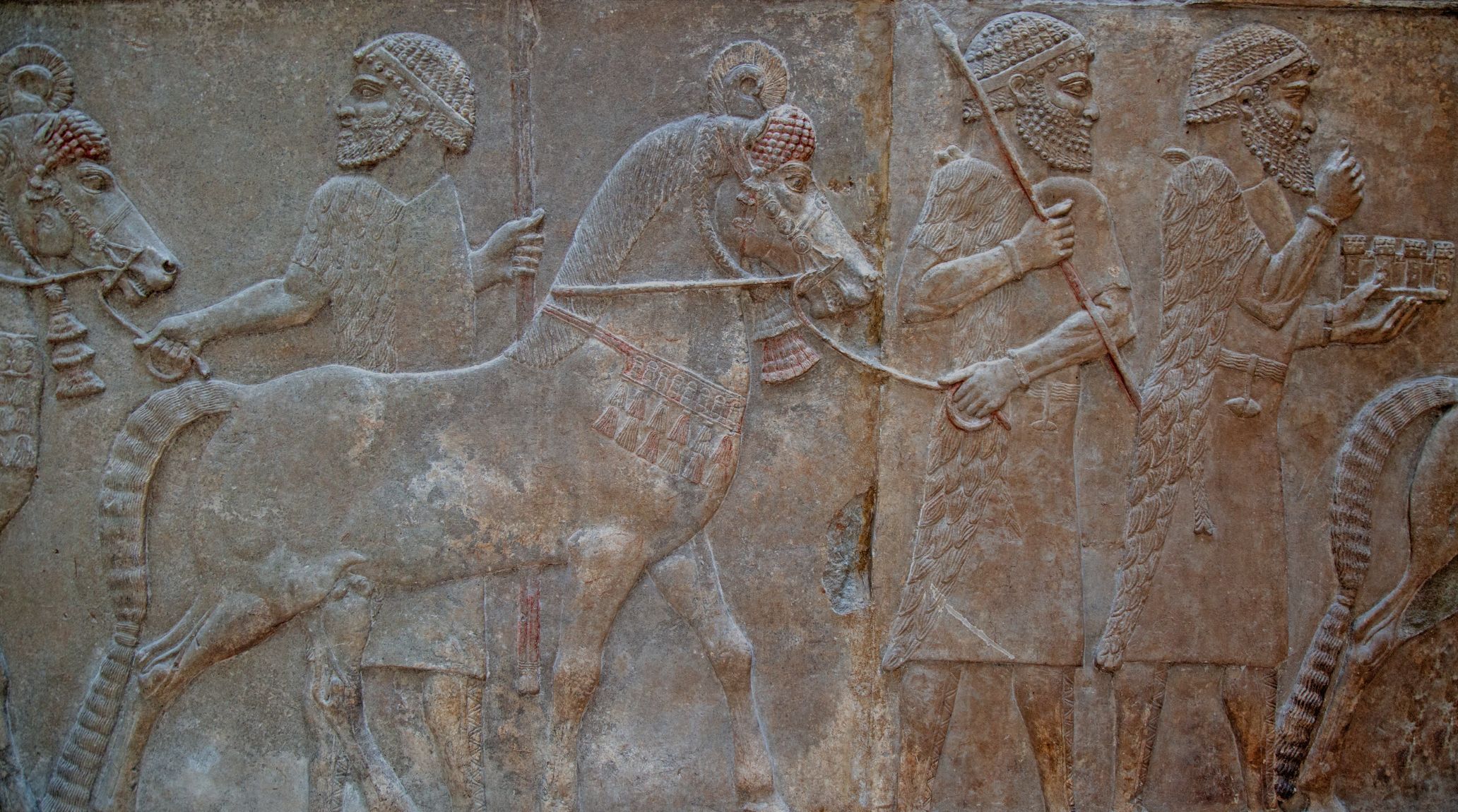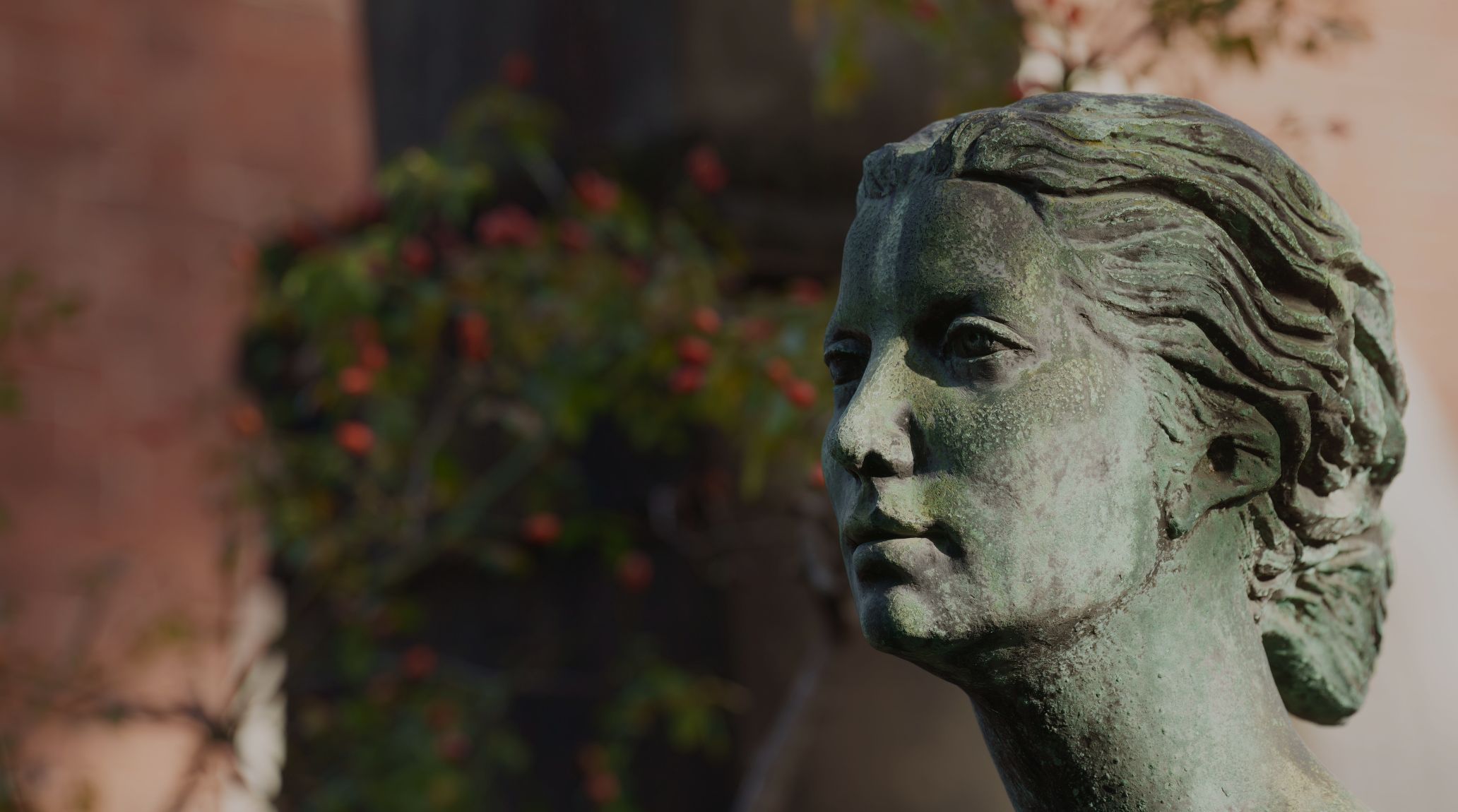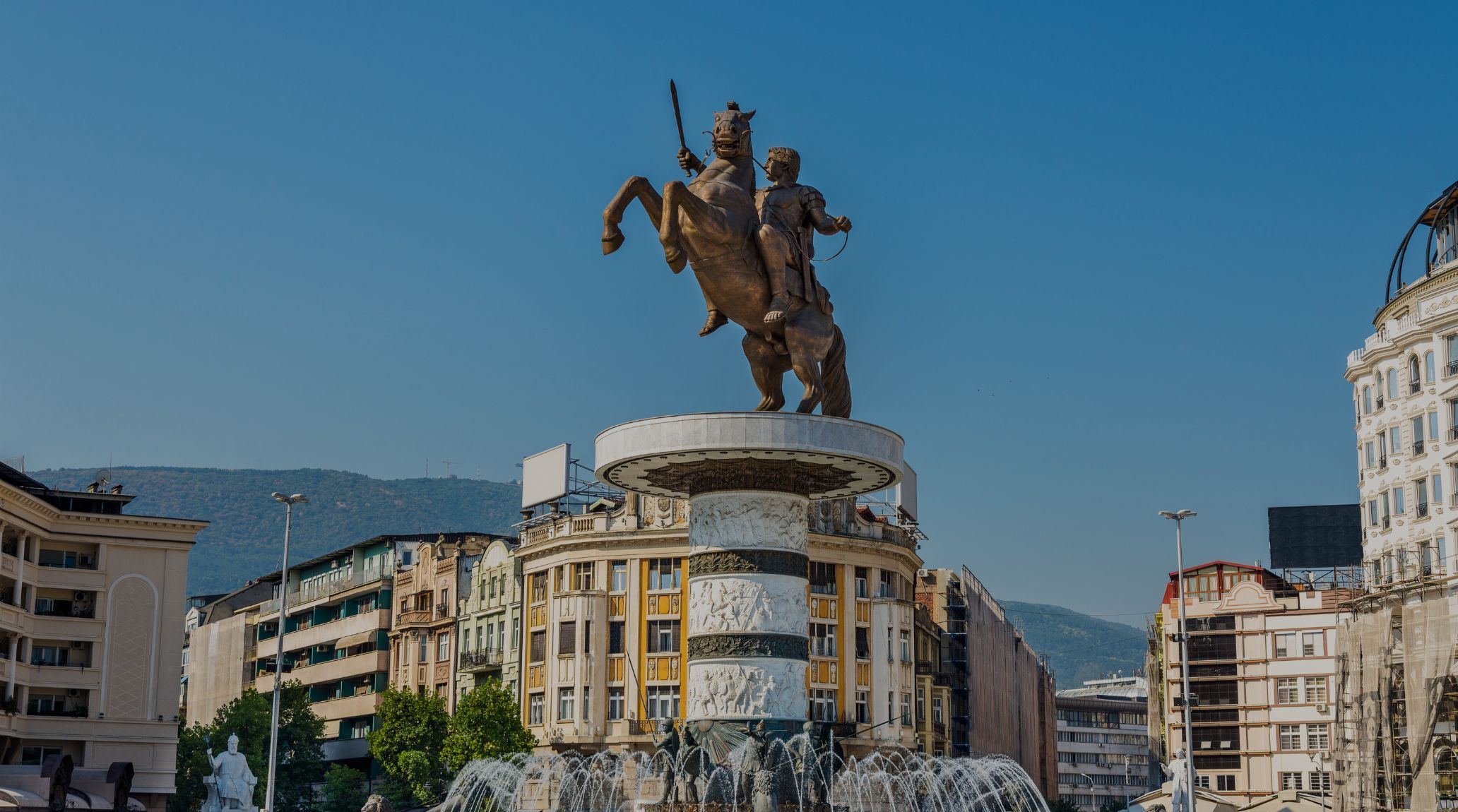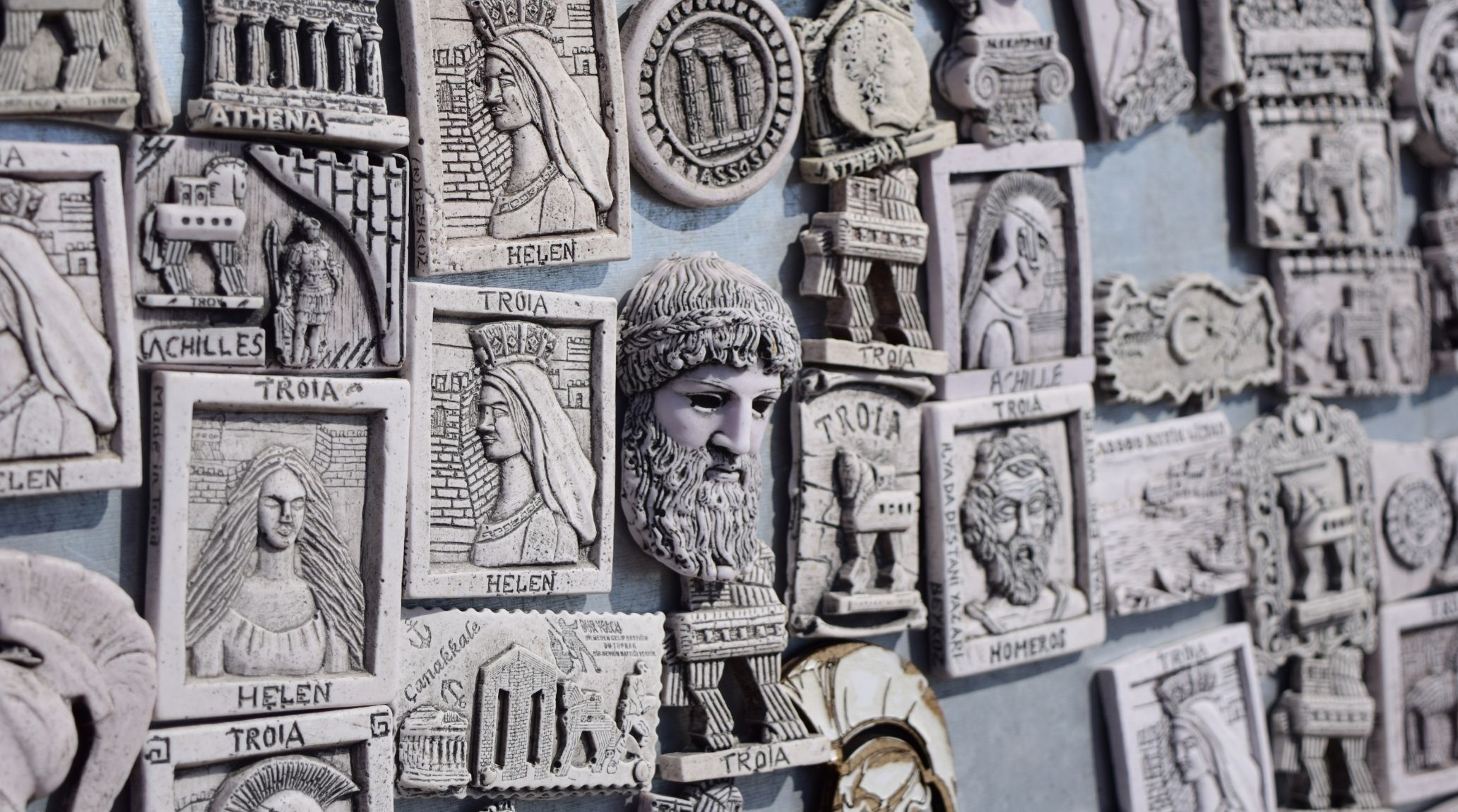
“
Greek mythology is filled with fascinating stories of gods, heroes, and mythical creatures that have captivated audiences for centuries. In this blog, we uncover 20 Interesting Facts About Greek Mythology that showcase the rich and complex world of these ancient legends. From the mighty Zeus to the terrifying Medusa, these tales continue to inspire and influence art, literature, and modern storytelling. 1
1
1
1
”
Zeus, the king of the gods, ruled Mount Olympus and was known for wielding thunderbolts. Despite his authority, he frequently disguised himself to interact with mortals, resulting in many offspring who became important heroes in mythology.1
Hera, Zeus' wife, was the goddess of marriage and childbirth. Despite her title, Hera was notorious for her jealousy, often punishing Zeus’ lovers and illegitimate children, like Hercules, who endured her wrath throughout his life.2
Poseidon, the god of the sea, wielded great power over storms and earthquakes. His temper was legendary, causing destructive tsunamis and violent seas, as seen in myths like Odysseus’ long journey home. 3
Hades, ruler of the underworld, was not seen as evil, though his domain was associated with death. He was known for abducting Persephone, which led to the creation of seasons, as her absence from Earth during winter caused life to wither. 4
The hero Hercules was famous for his incredible strength and for completing 12 nearly impossible labors. These included slaying the Nemean Lion and capturing the Golden Hind, tests that cemented his status as one of mythology’s greatest figures. 5
Athena, the goddess of wisdom and warfare, was born fully grown and armored from Zeus’ forehead. She was a protector of Athens, symbolized by the owl, and was known for her strategic thinking in both war and politics.6
The myth of Icarus warns against hubris. Given wings of wax and feathers by his father, Daedalus, Icarus ignored warnings and flew too close to the sun. The wax melted, and he fell into the sea, teaching lessons of overconfidence.7
Medusa, one of the Gorgons, was cursed by Athena to have snakes for hair. Anyone who gazed directly at her turned to stone. The hero Perseus used a mirrored shield to avoid her gaze and successfully decapitated her. 8
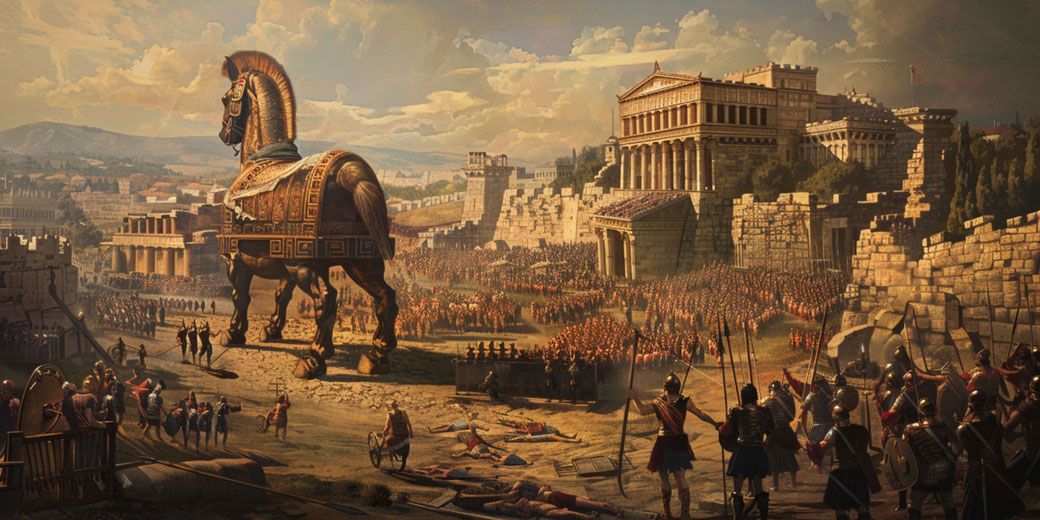
The Trojan War, sparked by the abduction of Helen, involved both gods and mortals. Achilles, the war’s greatest hero, was invulnerable except for his heel. His tragic death came from an arrow shot by Paris, targeting that one weak spot.
Apollo, the god of music, poetry, and prophecy, was also associated with healing and plagues. He was a dual-natured deity who could bring disease but also cure it, reflecting the Greeks' complex views on divine intervention in human health. 9
Artemis, Apollo’s twin sister, was the goddess of the hunt and wilderness. Fiercely independent, she protected animals and chastity. She once transformed the hunter Actaeon into a stag after he stumbled upon her bathing in the woods. 10
Prometheus, a Titan, defied Zeus by stealing fire from the gods and giving it to humanity. For this, he was punished by being bound to a rock, where an eagle would eat his liver daily, only for it to regenerate overnight. 11
The Fates were three goddesses who controlled human destiny. They spun, measured, and cut the thread of life for each person. Even Zeus was powerless to change their decisions, showing the Greeks’ belief in unavoidable destiny. 12
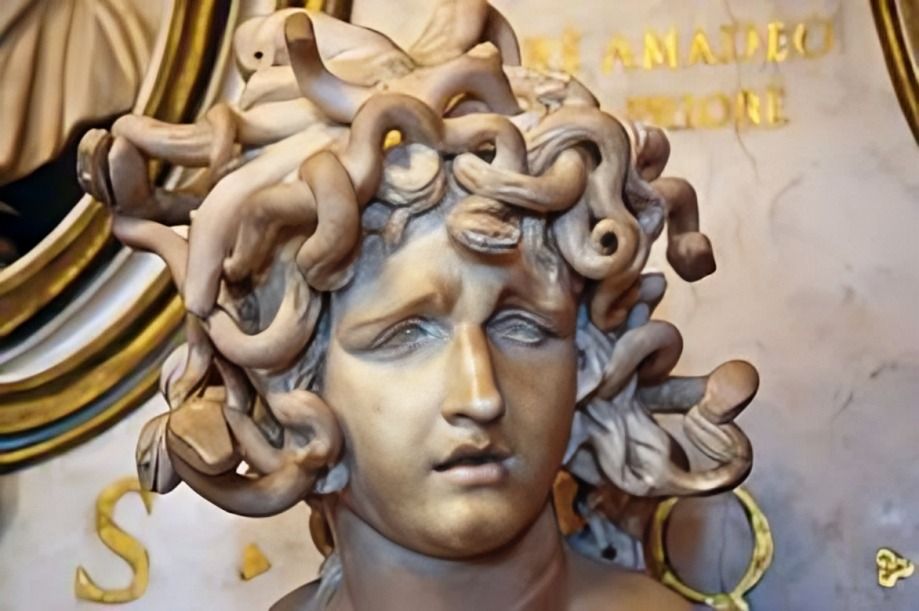
Medusa, the only mortal Gorgon, had snake hair and could turn people to stone. Her sister Echidna, wife of Typhon, gave birth to legendary monsters like Cerberus, Hydra, Chimera, and the Sphinx.
The Sirens were dangerous creatures whose enchanting music lured sailors to their deaths. Odysseus, in his famous journey, ordered his men to plug their ears with beeswax while he was tied to the mast to safely hear their song. 13
Ares, the god of war, was not as revered as other deities. Unlike Athena, who represented strategic warfare, Ares symbolized the brutal and chaotic nature of the conflict. Even the Greeks saw him as destructive rather than heroic. 14
The Olympian gods were believed to be immortal but not invincible. They could feel pain, experience emotions, and even suffer temporary defeat, making them more relatable to mortals despite their divine powers.15
Hestia, the goddess of the hearth, was often overshadowed by other gods. She symbolized domestic life, maintaining the fire in the gods' home and representing the stability of family and community. 16
Pandora, the first woman created by the gods, opened a box that unleashed all the evils of the world, leaving only hope inside. This myth explains the origin of human suffering and the balance between despair and hope in Greek mythology. 17
Narcissus was a mortal known for his beauty who fell in love with his reflection. Unable to look away, he died staring at himself. His story gave rise to the term “narcissism,” meaning excessive self-love or vanity. 18
